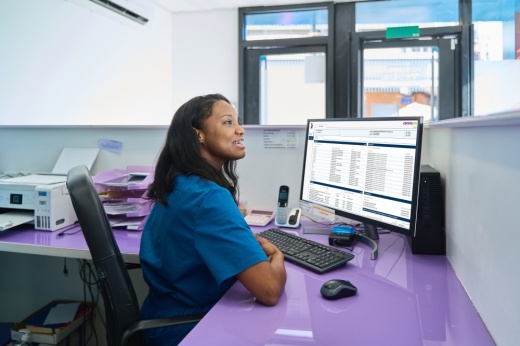What's happening
Connxus, a Central Texas health care nonprofit, joined a national network of health information exchanges known as the Patient Centered Data Home in June. The platform, operated by the Civitas Networks for Health, helps Central Texas patients receive care and exchange their health information with medical providers across the country.
“We are able to better care for the Central Texas residents because we know what is taking place in their medical history across the state lines,” Connxus CEO Eliel Oliveira said.
The move by Connxus aligns with recent efforts from the Trump administration to modernize and improve the sharing of medical information between providers and patients nationwide, according to a news release from the Centers for Medicare & Medicaid Services.
How it works
If a Central Texas resident requires medical attention when they are in another state, Connxus can collaborate with other health information exchanges to alert their home provider. The network can then share a patient's medical records with an out-of-state provider and ensure the patient receives follow-up care back home.
With more than 45 health information exchanges participating, the national data network has served 177 million patients in the United States, according to Civitas Networks for Health information.
“[The Patient Centered Data Home] allows your providers to know what's going on no matter where you go in the U.S. and help improve your health here locally,” Oliveira said.
The background
Connxus has enabled Central Texas health care providers to collaborate in caring for shared patients over the last 28 years. The nonprofit aims to ensure providers can better treat patients by understanding their medical history, Oliveira said.
Sixteen partner organizations across eight Central Texas counties have joined Connxus’ network, including St. David’s Health Care, Central Health, Integral Care, UT Health Austin and Austin-Travis County EMS. The organization has around 2 million patients in its database, according to Connxus information.
As Austin’s health information exchange system, Connxus transfers patients’ medical records and health care data between primary care doctors, hospitals, pharmacies and emergency medical services. Connxus can disclose this information between two or more providers caring for a patient under the Health Insurance Portability and Accountability Act, or HIPPA, Oliveira said.
“If you go to a doctor today, they should be able to access details about your medications from any other providers in the region that have prescribed [you] medication,” Oliveira said
Connxus communicates between a patient's medical providers about their care in real time. If a patient is admitted to the emergency room, Connxus will notify the patient’s primary care doctor who can assist with their treatment.
Something to note
During the COVID-19 pandemic, Connxus leaders realized many Central Texans were underserved and faced inequities in receiving health care, Oliveira said.
Connxus has now expanded its network to assist social providers, including Ending Community Homelessness Coalition, or ECHO. Additionally, Connxus has partnered with Austin ISD to provide social services for students.
Connxus may share patients' health data with these organizations by receiving their informed consent, Oliveira said.
“We want to make sure that individuals are living their best lives in Central Texas,” Oliveira said.
Going forward
Connxus leaders have been advising Trump administration officials as the Centers for Medicare & Medicaid Services, or CMS, work to create an Interoperability Framework to exchange health care data across the country.
Dozens of data networks, electronic health records, health systems and providers have pledged to join the CMS Interoperability Framework in the first quarter of 2026, including Amazon, Oracle Health, CVS Health and UnitedHealth Group among others, according to CMS information.
While Americans can now order groceries, call a ride or transfer money from their phones, Oliveira said the nation's health care technology has fallen behind other industries.
In the future, Oliveira said he would like to see a mobile app developed where patients could view and control access to all of their health care data. The application could notify patients of how much procedures or prescriptions would cost ahead of time, he said.
“[The Patient Centered Data Home] could play into a national federal strategy to allow you to get any information about your own health in one place,” Oliveira said.





